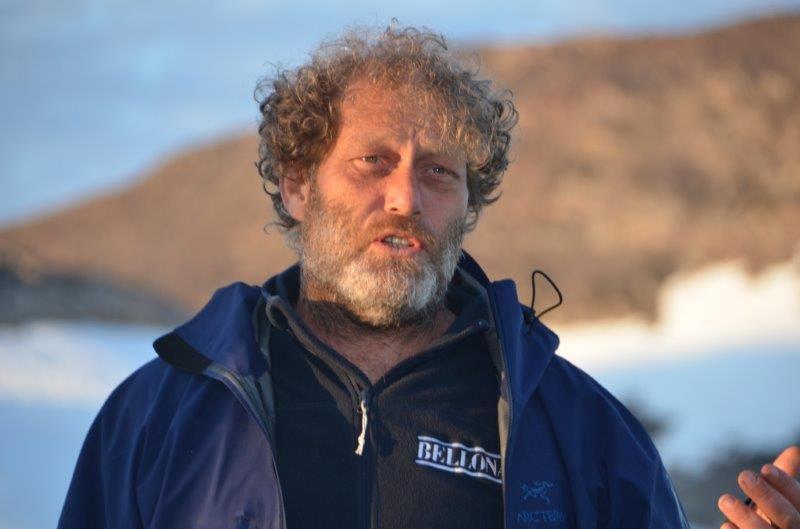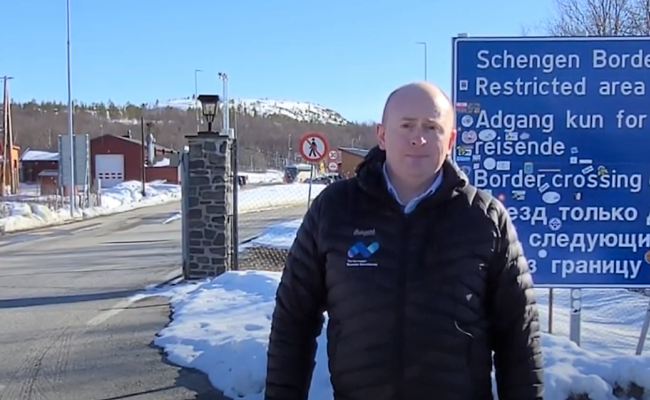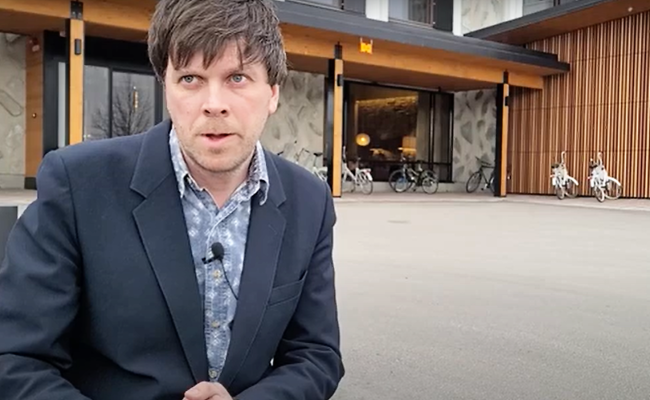Bellona Closes its Offices in Russia

Founder of Bellona, Frederic Hauge. (Photo: Bellona)
Bellona was active in Russia for more than 30 years. Now those activities have ceased, and Bellona has established a new office in Vilnius, Lithuania, where Bellona’s experts, relocated from Russia, will continue their work.
Bellona was active in Russia for more than 30 years. Now those activities have ceased, and Bellona has established a new office in Vilnius, Lithuania, where Bellona’s experts, relocated from Russia, will continue their work.
“We have been keen to retain our expertise and will use it to assist Ukraine, while at the same time we must prepare for the increased security risk at Russian nuclear installations and waste storage facilities,” says Bellona founder Frederic Hauge in a press release.
Significant environmental challenges
Bellona previously had an office in Kyiv, Ukraine, and Bellona’s experts know the Soviet nuclear technology used in Ukraine well. It is this expertise that Bellona is now concentrating in its new office in Lithuania.
“We know that for many years there will be a need for international assistance and cooperation to clean up Ukraine, both in terms of cleaning up and securing nuclear installations, nuclear waste and other large releases of environmental toxins as a result of the war,” says Hauge.
He says that the war and the attacks on the Ukrainian nuclear power plants and waste storage facilities with spent fuel pose an acute threat.
Bellona finds it tragic to end our work in Russia
“Bellona considers these to be war crimes and is deeply concerned about the consequences,” says Hauge.
“Chernobyl must be secured further, all planned international measures have been halted. Zaporizhzhia is exposed to an enormous pressure and risk, and this applies to several other power plants that are under fire.”
There are tens of thousands of used fuel elements that must be handled and large expenses are expected in order to secure areas at former uranium processing facilities, according to Bellona. In addition, there is the clean-up at Chernobyl, which has now been put on hold due to the war.
Bellona will not give up
“Bellona has played a central role in cleaning up similar conditions in Russia,” says Hauge.
“The establishment of a new Bellona office in Vilnius must therefore be seen in a long-term perspective, where Bellona will use its experience gained from securing nuclear waste in Russia for 30 years to be able to assist Ukraine in securing their enormous amounts of nuclear waste and to solve other environmental problems by finding technical solutions and securing international funding.”
In the long term, Bellona will also work for new sustainable energy production and industrial development in the country and will help find financing for this.
Enough is enough
“Bellona finds it tragic to end our work in Russia,” says Hauge.
It is also impossible for us to cooperate with the current regime.
“The war makes it impossible to continue. Bellona played an important role in the glasnost period in creating transparency around environmental conditions in Russia. We have fought many important environmental battles with accusations of espionage against our employee Alexander Nikitin, who was acquitted in the Supreme Court in 2000 and later played a central role in Bellona’s extensive work at our offices in Murmansk and St. Petersburg.”
After almost three decades in Russia, the environmental fight must continue from the outside. Bellona will be working on revealing Russian environmental issues, but the format of work has to change.
“Bellona cannot carry out its work without the understanding of central government actors in Russia, where we have constantly been exposed to attacks and attempts to brand us as foreign agents,” says Hauge.
“It is also impossible for us to cooperate with the current regime, which invades a neighboring country and with a nuclear industry that engages in nuclear terrorism and threats. The war therefore means that all Bellona’s activity inside Russia has ceased.”
“As a result, Bellona is very concerned about increased risks at the nuclear installations and waste storage facilities in Russia,” says Hauge.
“Bellona will seek to maintain and update our documentation on environmental conditions in Russia. The current situation increases the nuclear risk from Russia and there is reason for this to worsen in the future.”
Bellona is marking the start of its work from Lithuania by publishing the environmental magazine Environment & Rights, which describes what they now know about the environmental problems in Ukraine as a result of the war.



